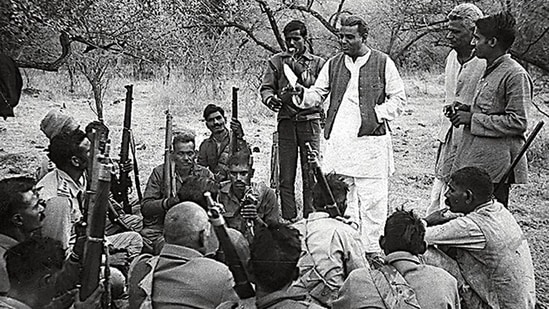
The phrase "dark days" in the context of Indian society often refers to periods of social, economic, or political upheaval, oppression, or regression. While India has a rich and diverse cultural heritage, it has also experienced challenges and setbacks throughout its history. Some key aspects that have been considered as "dark days" in Indian society include:
Colonial Rule: The period of British colonial rule in India, which lasted for nearly two centuries, is often regarded as a dark chapter in Indian history. Colonial exploitation, economic plunder, cultural imperialism, and political subjugation left deep scars on Indian society and hindered its socio-economic development.
Social Injustice and Caste Discrimination: India has grappled with social injustice and caste discrimination for centuries. The caste system, with its hierarchical and oppressive structure, has marginalized and discriminated against millions of people, particularly those belonging to lower castes or Dalit communities. Practices such as untouchability, caste-based violence, and social exclusion continue to persist in certain parts of the country, despite legal and social reforms.
Gender Inequality and Patriarchy: Gender inequality and patriarchy have been entrenched in Indian society for generations. Women have faced discrimination, violence, and limited opportunities in various spheres of life, including education, employment, and political representation. Issues such as dowry-related violence, female infanticide, child marriage, and gender-based harassment remain pervasive challenges.
Poverty and Economic Inequality: Despite significant econ omic growth and development in recent decades, India continues to grapple with widespread poverty and economic inequality. Millions of people lack access to basic necessities such as food, clean water, healthcare, and education, exacerbating social disparities and perpetuating cycles of poverty and deprivation.
Communal Tensions and Religious Conflict: India has witnessed communal tensions and religious conflict throughout its history, often fueled by political opportunism, religious extremism, and social divisions. Incidents of communal violence, religious intolerance, and sectarianism have strained interfaith relations and threatened social cohesion, particularly in diverse regions with mixed religious populations.
Political Turmoil and Authoritarianism: India has experienced periods of political turmoil, authoritarian rule, and democratic backsliding at various points in its history. Emergency rule in the 1970s, political corruption, erosion of democratic institutions, and challenges to freedom of expression and dissent have raised concerns about the health of Indian democracy and governance.
While India has faced dark days and challenges in its past and present, it is also a resilient and dynamic society that has shown remarkable resilience, progress, and potential for positive change. Efforts to address social injustices, promote inclusive development, uphold democratic values, and build a more equitable and just society are ongoing, reflecting the aspirations of millions of Indians for a brighter and more prosperous future.
Thank You.